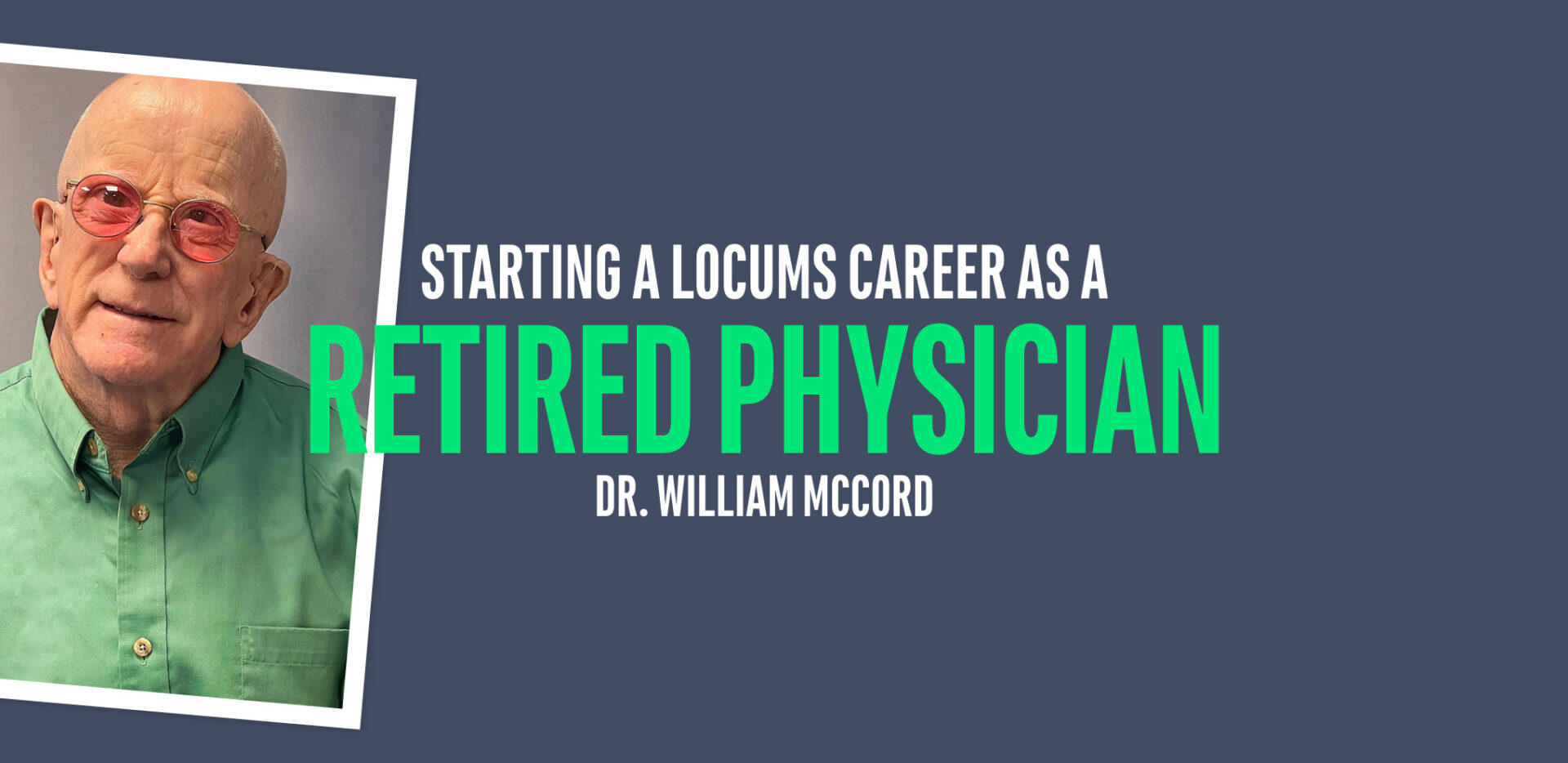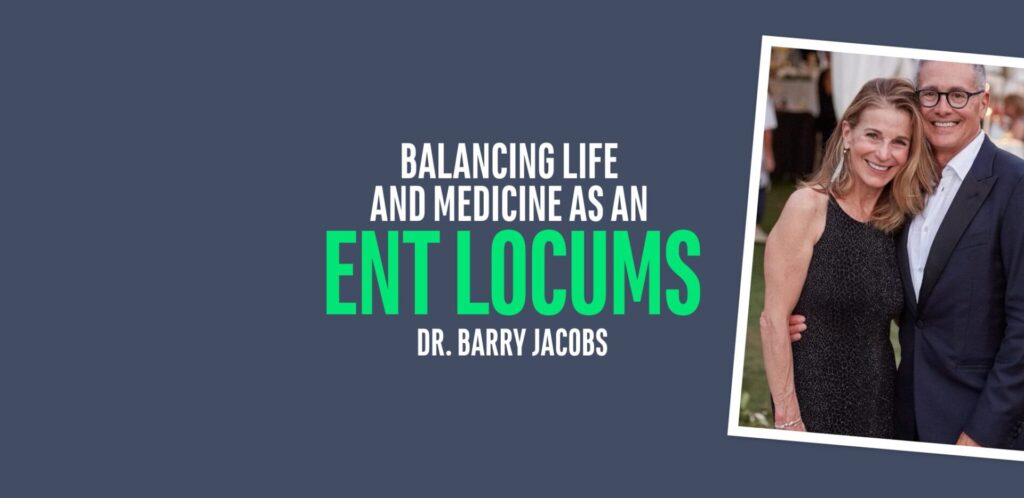If you’re nearing retirement and ready to cut back without giving up your practice entirely, a locums career might be for you. Locums jobs give retired doctors the opportunity to enjoy the benefits of retirement while still remaining clinically active.
Dr. William McCord is a great example. During COVID, he found himself increasingly bored by both quarantine and retirement, and was looking for a way to re-engage in clinical practice without giving up the flexibility of retirement––while also having the opportunity to travel and see new areas of the country, too. We asked Dr. McCord about his decision to come out of retirement and to practice full-time locums.
Here’s what he had to say about the benefits of a locums career for retired physicians:
Tell us how you got started in your locums career as a retired physician. What went into your decision to try working locums after retiring?
I chose locums because after retiring, COVID quarantine and life in general was becoming boring. I missed the problem solving, the patient interaction, and educating my peers.
I got into rheumatology because I enjoyed problem solving––[growing up] I always thought about being a detective and initially wished to be an engineer [before becoming a physician]. Locums gave me a chance to not only use my brain, but explore other areas of the country as well.
[Even though I was bored], I did not wish to be bogged down in a new permanent practice. With locums, I could name my own hours and days I wanted to spend working, vs. the time I wanted to spend in retirement. That’s a flexibility I’d never have otherwise.
Did you have any concerns about practicing locums jobs as a retired doctor? How did your consultant address them?
I was concerned about the amount of paperwork and data involved. But it worked out. Hayes Locums was very helpful in pointing me to the proper departments.
What were you looking for out of locums, and what made you want to continue practicing locums after your first assignment?
I was looking for flexible hours, and I had a desire to see new areas of the country. It was also important to me to be able to still take time out of my year for not working.
[After my first assignment, I found that] I enjoyed the work. It kept my brain fresh. I enjoyed meeting new people, and being able to teach medical students in training. I also appreciated getting the chance to see new scenery.
Can you talk about the benefits of remaining clinically active through locums after retiring from your main practice?
Locums forces you to keep up with recent advances in the field; [in that way], it keeps your brain fresh and sharp.
I had to undergo eight hours of psychological testing before I went back to work. That’s more testing than the president gets! That was of some benefit as well––though it was an annoyance, it was certainly educational.
What advice do you have for other rheumatologists considering locums?
If you want flexibility in the amount of time that you work, the destinations where you work, and you either don’t have a young family or your family is willing to travel with you, I would consider locums. My kids are grown now, [so we were able to travel], and my wife has enjoyed spending some time at the destinations I’ve gotten to work in.
*This interview has been edited for clarity and length.



